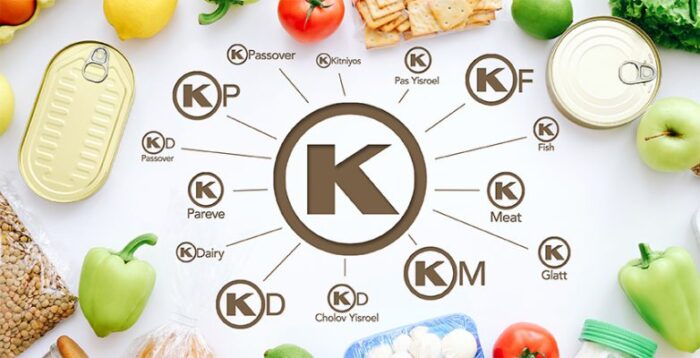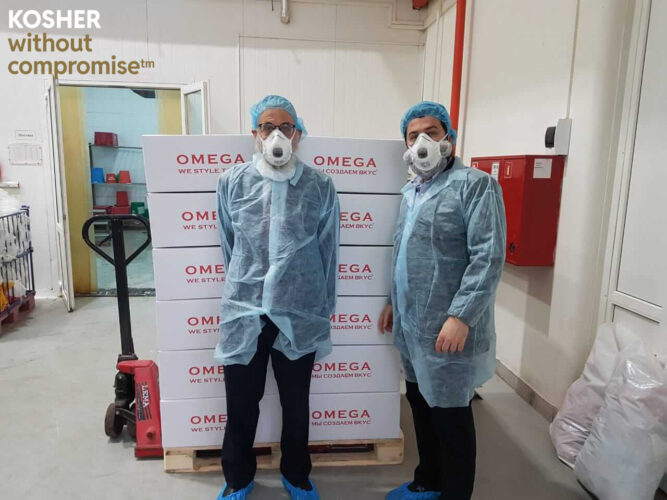
The next steps in becoming kosher certified.
Once your company has confirmed the terms and fees, you’re ready to proceed with kosher. Here’s what comes next:
Timeline for Kosher Certification
The time it takes to complete the application process varies with each company. Ultimately, it will depend on factors such as the initial visit date, the load of raw material data, or your company’s response time to requests. On average, certification takes between 4-6 weeks to complete. If you have a need to expedite, please let us know. When you decide to proceed with kosher, this should be workable with your cooperation.
Data Submission and Initial Payment
A certification specialist will guide you through submitting your products, ingredients, raw materials and labels. The specialist will need to match your lists with the ingredients on any kosher certificates they come with. Organized records are the first step to an effective and efficient kosher program. So, having any kosher certificates available ahead of time is very helpful.
Simultaneously, we’ll bill your company for the first installment of your first year’s annual fee. This will serve as both a non-refundable deposit, as well as payment for the initial visit. Again, this initial payment is part of your annual fee, so the total you were quoted by email includes this initial amount.
Initial Visit
An experienced Rabbinic Coordinator (RC) from one of our main offices will need to visit your facility for the initial certification setup. Exclusively with OK Kosher, this initial visit is a prerequisite in order to proceed with kosher certification. On this visit, the RC will determine the necessary plans and procedures to maintain your kosher program, keeping both our high kosher standards and your company’s needs in mind. He’ll clearly explain instructions for carrying out the kosher guidelines at your facility, which will later be put in writing for the facility staff. Throughout certification, the Rabbinic Coordinator will repeat an executive-level visit each year. We refer to this as the Annual Visit.
Certification Agreement and Balance Payment
After conducting he initial visit, we’ll draft and send your company’s certification agreement for you to review. Once signed and executed, it grants your company rights to use our certification mark (kosher symbol) during the term of certification. At this point, we’ll bill your company for the remainder of your first year’s annual fee (your quoted amount minus the initial fees you paid up-front).
The OK Kosher symbol is your best resource for marketing your product(s) as kosher on their packaging, online and in other marketing materials. See the next section for more on using the kosher symbol.
Customer Service Contact
Next, we’ll assign a dedicated account representative from our expert customer service team to your company. They will walk your kosher contact person through DigitalKosher; our online client portal, and send you our Certification Manual, a handbook containing the general procedures for maintaining kosher operations. We’ll also inform you about promotional opportunities such as our Featured Brands page and guide you through our kosher symbol use best practices. Your account rep will remain your go-to person for all of your customer service needs throughout your certification program.
Field Representative
If applicable to your program, we will also assign a local KosherForce field representative (mashgiach). Their role will be to conduct periodic, unannounced visits to your facility to verify adherence to all instructions. Unannounced visits are an essential piece of any reliable kosher certification program. They provide assurance to end consumers that the products are truly up to the kosher standards they expect. As needed the field rep may also be tasked with conducting pre-scheduled kosherizations or specially supervised productions, such as switching between dairy and Pareve runs, or Passover production. Our field reps are professionally trained in conducting audits with minimal disruption to your schedule, and with the utmost respect for your operations.
We look forward to helping your company succeed with kosher. In these steps, together, we can build and run a high quality kosher program. We’re here to support you, and look forward to working with you!


 EN
EN  ZH
ZH  KR
KR  BR
BR  ES
ES  IN
IN  IL
IL 



